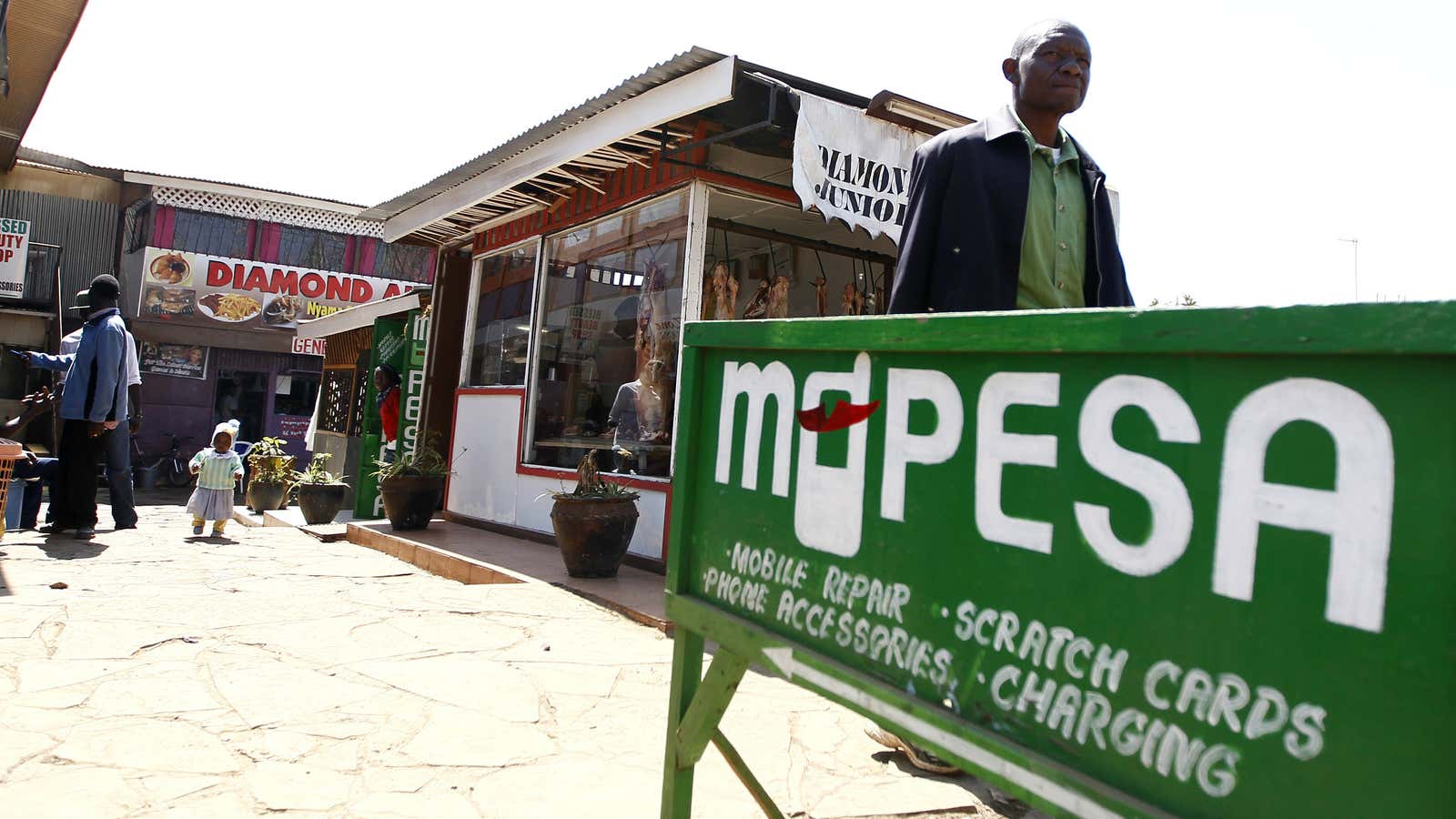The battle over Kenya’s mobile money space just got a little uglier.
In June, Safaricom, the country’s leading telecom firm, sued rival Airtel for trademark infringement, claiming that the latter had been including M-Pesa logos during the promotion of Airtel Money, its own money transfer platform.
After initially deciding to try and settle the matter out of court, the latest news is that the two rivals have failed to come to a resolution and are now about to duke it out in court. Kenya’s leading mobile firms have been at each other’s throats for a while now.
Last year, Airtel complained to the regulator that Safaricom was abusing its dominance in the market by excluding other mobile operators’ products from its retail outlets, which resulted in it ordering Safaricom to open up its more than 83,000 mobile money agents to host other services beyond M-Pesa—a clear victory for Airtel.
Earlier this month, the government said it plans to introduce new rules to protect against anti-competitive practices in the country’s telecom sector. Safaricom, part owned by Vodafone, claims that this decision unfairly targets them and is a direct result of Airtel’s inappropriate lobbying of government authorities.
If the new proposed rules are adopted by parliament, it could lead to the break-up of Safaricom. “The new regulations will criminalize us,” Safaricom CEO Bob Collymore has said.
But despite the best efforts of Airtel, some analysts don’t expect the government to actually force Kenya’s biggest mobile firm to change its ways. “Safaricom has become the monster over the whole communications and tech space and integrated itself with the government,” Bankelele, a leading business blogger, told Quartz.
Kenya’s government owns 35% of Safaricom and the company is one of the leading revenue generators in the country. “This makes it hard to believe that the government is going to crack down harshly on Safaricom or [M-Pesa] which are also massive global image exports as models of innovation and privatization of a state entity,” Bankelele says.
The mobile-money space is a $23-billion business in Kenya, and Safaricom is the dominant player.
The firm’s ties to the government are also deeply entrenched in other areas of the tech space. Last year, the firm signed a security contract with the government worth $165.2 million to deliver an anti-crime communication and surveillance system.
“As long as Safaricom delivers on its government projects, new rules won’t be enforced,” says Bankelele. “Now if Safaricom falters, then that will be different.”
